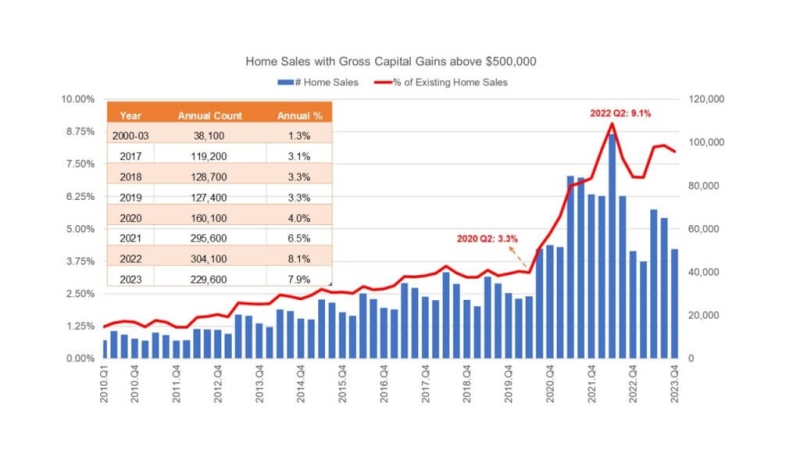Advertisement
Treasury Secretary Geithner: "We do not believe servicers are doing enough to help homeowners"

U.S. Department of the Treasury Secretary Timothy F. Geithner has delivered testimony before the Senate Committee on Appropriations Subcommittee on Financial Services and General Government. In his testimony, Secretary Geithner touches upon a number of topics, from the Home Affordable Modification Program (HAMP), to Wall Street bailouts, to his accusations that the big banks and servicers are not doing enough to assist homeowners in the current housing crisis. The following is Secretary Geithner's prepared testimony before the Senate Committee:
Chairman Durbin, Ranking Member Collins, members of the Subcommittee, thank you for the chance to testify today.
Today, the full Senate begins debate on landmark legislation that will protect American families, limit risky activities on Wall Street and end the perception that any firm is "too big to fail."
Over the past several weeks, opponents of reform have tried to convince the American people that these reforms will hurt Main Street or help Wall Street.
Those arguments won't work because they aren't true.
Reforming Wall Street will create greater certainty for all businesses. And it will restore the financial system to its proper role of providing financing for Main Street businesses across the United States.
I have submitted written testimony that describes in detail the important proposals in Treasury's Budget Request for next year. We are proposing increases in IRS customer service and enforcement staff, to help make it easier for Americans to meet their obligations as citizens, and harder to avoid them. We are also proposing targeted investments in offices that play a significant role in the complex recovery and financial stability programs.
Finally, we have identified program cuts, size reductions, and new reforms that will generate nearly half a billion dollars in savings and revenues for the department--including nearly $43 million in savings at the IRS, through increased e-filing and a reduction in automatic mailings.
I want to provide a few brief comments on the state of the major programs we have designed and are executing to help repair the damage caused by the financial crisis.
The damage from housing crisis has affected millions of Americans.
It's affecting those who were taken advantage of by predatory lenders, seeing their interest rates suddenly and unexpectedly skyrocket. It's affecting those who took out traditional mortgages only to see their home's value plummet, leaving them owing more to the bank than their house is worth. And it's affecting those who, as a result of the broader crisis, have lost their jobs and are facing foreclosure.
As you have recognized, Mr. Chairman, solving these problems is crucial to our economic recovery. For most Americans, their house is their most important financial asset, and as the financial crisis wreaked havoc on household wealth, the Administration moved to protect this critical component of stability.
Beginning in February 2009, the Administration, working with the Federal Reserve, undertook a series of programs to help stabilize housing prices, bring down mortgage rates, and reduce foreclosures.
Together, Treasury and the Fed have purchased more than $1.4 trillion in agency mortgage backed securities. We also acted to stabilize the GSEs. These actions returned mortgage rates to historic lows.
These efforts have helped more than 4 million American homeowners refinance to lower monthly payments--saving an estimated $150 per month and more than $7 billion cumulatively in the past year.
The Administration's Home Affordable Modification Program has offered trial modifications to more than 1.4 million homeowners – this number represents roughly three-quarters of Americans estimated to be currently eligible for the program. More than one million homeowners have begun these trial modifications and seen an immediate reduction in their monthly mortgage payments by an average of more than $500 per month, and we expect significantly more Americans will become eligible for the program over time.
I want to underscore that HAMP is a program designed to help a portion of borrowers at risk of foreclosure. It is not designed for--or available to--borrowers who speculated on real estate, who are at risk of losing a vacation home, who took out loans above the limits established by Fannie and Freddie, or who have a monthly payment less than 31 percent of their income.
We recently made important enhancements to HAMP to help responsible borrowers, enhancements that will give us increased flexibility to reach our goal of reaching up to 3 to 4 million homeowners at risk of foreclosure over three years.
These changes will expand the program's outreach to assist more unemployed homeowners, help more Americans who owe more on their mortgage than their home is worth, and provide greater protections for homeowners at risk of foreclosure.
The Administration's HFA Hardest-Hit Fund also provides $2.1 billion to housing finance agencies in ten states that have experienced high levels of unemployment and home price declines.
I want to be clear that we do not believe servicers are doing enough to help homeowners – not doing enough to help them navigate the difficult and often frightening process of avoiding foreclosure.
We are concerned by the wide variation in performance we see across servicers and by the countless frustrated phone calls we receive from borrowers. We are troubled by reports that servicers have foreclosed on potentially eligible homeowners, or that they have steered these borrowers away from HAMP and into the bank's own modification program. That they have lost documentation, or claimed to. That they are not responding to the needs of responsible and increasingly desperate homeowners.
None of this is acceptable. We are committed to making sure that servicers hold up their end of the bargain. We are conducting targeted, in-depth compliance reviews. We are compelling servicers to re-review groups of mortgages – or their entire book – for eligibility. And in circumstances where servicers are not compliant we will withhold incentives or demand their repayment.
And we will soon publish much more detailed data on the performance of servicers to hold them accountable to the public – so that both members of Congress and the homeowners in your communities can assess for themselves the performance of these servicers.
Mr. Chairman, we are going to continue to work to refine these programs to try and reach as many borrowers as possible, and we welcome your input and that of the Committee.
Let me give you a brief update on our efforts repair the rest of the financial system.
The steps we have taken, which include the Recovery Act, actions by the Federal Reserve, and the Administrations financial policies, broke the back of the financial crisis and set us on a path to recovery.
Through these policies, we have significantly reduced the cost of borrowing. The cost of a loan to buy a house or a car, to build a business or a new school, has fallen sharply. We have replaced taxpayer funds with private capital and banks have repaid the bulk TARP funds with interest.
And we've been able to do so at much lower cost than anyone anticipated. One year ago, we estimated the costs of our financial stability efforts would be more than $500 billion. Our latest estimate conservatively puts the cost of TARP at $117 billion, or less than one percent of GDP –and if Congress adopts the Financial Crisis Responsibility Fee that the President proposed in January, the cost to American taxpayers will be zero.
Even with these improvements to the financial system, however, we must recognize that in some areas – the commercial real estate market, parts of the housing market not supported by Fannie and Freddie or FHFA, and for small businesses in many parts of the country, credit is still tough to get.
That's why we hope Congress will be willing to work with us to enact legislation the President has proposed for a new Small Business Lending Fund, which will support small banks in extending more credit to small businesses and reinforce the Administration's efforts to enhance SBA programs.
In closing, I am very grateful for the support of this committee – the support to help make sure Treasury has the resources we need to carry out an enormously important mission during this challenging time for our nation. And I am very fortunate to work with such talented, dedicated people at Treasury, people who are doing complex, difficult work under great stress in the service of these goals.
Thank you.
About the author





